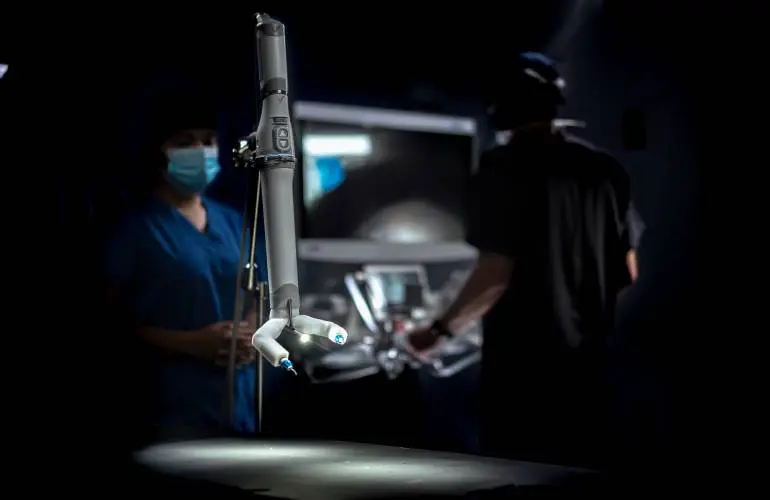
No matter who you talk to, it’s a common narrative across the state: it’s hard to find funding in Iowa.
But more and more, the old adage seems less and less true.
In February, The Gazette Company and We Create Here, with the help of Troy Miller, took a look at the venture capital ecosystem in the Creative Corridor. The result is a 25-page white paper that acts as “a road map for Accredited Investors and agents of impact in order to better educate and catalyze the potential found in Iowa’s Creative Corridor,” according to the report.
So has anything changed? And what about the rest of the state?
While the report focuses on “private dollars invested in private endeavors where securities or equity are exchanged,” there are increasingly diverse ways entrepreneurs have been making it work when it comes to funding their startup.
“What has changed is the new money that is available,” Tej Dhawan said of how Iowa’s investment landscape has changed over the past few years. “It existed before but it’s more available to startups that are showing traction now.”
From Steve Case’s Rise of the Rest pitch competition to the inaugural class of the Iowa Startup Accelerator, seed funding or traditional venture capitalist raises are no longer the only way to get a business off the ground. When it came down to it, that seemed to be the crux of investment in Iowa—there’s no one way to do things, but little by little, Iowa entrepreneurs are making it work.
Pitch. Accelerate. Repeat.
With everything from pitch contests and business model competitions to grants from local economic development groups and accelerator funds, it seems there are more ways than ever before for entrepreneurs to fund their ideas.
Granted, it won’t provide financing for the entire lifecycle of a company, but it’s a good place to start. At least that’s what Higher Learning Technologies co-founder Alec Whitters has found.
“We just put ourselves out there and through that we were able to form some relationships with people in the area who could give us advice and perspective on what we were doing,” he said.
From there, Whitters says the relationships continued to spiral outward and develop into something bigger. “The key is really to be out there meeting people and form genuine relationships with them and good things start happening.”
Through events like the Technology Association of Iowa’s Pitch & Grow, the John Pappajohn Iowa Business Plan Competition and, more recently, Steve Case’s Rise of the Rest pitch competition, local startups have been able to take home tens of thousands of dollars and gotten to know the people who hold the pursestrings while establishing lasting connections. Connections Whitters says become even more important when it is time to raise a more substantial round of funding. And he should know—HLT closed a $1 million round of seed funding earlier this year.
Outside of pitch competitions and contests with cash prizes, Iowa startups are finding funding though programs like the Iowa Startup Accelerator.
Backed by a $1 million fund, the Accelerator not only helped its inaugural 10 companies propel their businesses forward, but also gave them some solid financial legs to stand on—up front the teams each received $20,000 of initial investment. On the heels of the Accelerator’s inaugural Launch Day, the program’s 10 companies received an estimated $400,000 from the Accelerator’s fund as well as local investors like Dreamfield Ventures, Built by Iowa and MediRevv.
“Innovative startups will no doubt play a major role in the revitalization of the American economy,” Built by Iowa’s Ravi Patel said of the fund’s decision to invest $150,000 in the ISA teams. “Some of the largest, most successful companies around today, literally started in someone’s garage, and were helped along by others who believed in them.
“If we truly want to see a return to enduring economic prosperity in this country, we will do whatever it takes to support these entrepreneurs. We hope that our initial investment will cause others to follow suit, and create a ripple effect that will pay off big in the long run for everyone.”
Can you say new funds?
When Patel, Roby Miller and Adam Ingersoll came together in 2012, they weren’t necessarily out to create Built by Iowa. The trio had a simple goal: “We all three of us really enjoy working with startups and we believe in what startups do,” Miller said. “The whole idea behind startups is they’re innovating really quickly and testing hypotheses. The high energy all around that kind of innovation and disruption is what we all thrive on.”
Then there was the secondary, possibly more pressing community reality, Miller adds: “We saw a need in the market between seed funding and Series A.”
Typically making investments between $50,000 and $150,000, Built by Iowa has taken up the mantle to ensure that Iowa startups have the runway they need to build their companies. So far, Built by Iowa’s portfolio is comprised of a variety of companies, including TelePharm, TutorUniverse/GotIt!, Higher Learning Technologies, ClusterFlunk, Pear Deck and NextStep.io. While Built by Iowa doesn’t have specific investment criteria, Patel says he’s noticed a trend in the companies they’ve invested in.
“My personal mission statement is ‘do good things with great people,’” he said. “When we look at the investments we’ve made, it’s all businesses doing good things in some way. They’re all businesses with some sort of social good mission, they’re all solving some major problem that exists in the market.”
Most recently, that portfolio includes all 10—yes, you read that right—recent Iowa Startup Accelerator graduates. Initially the fund announced two $50,000 investments would be made on Launch Day, but then, on stage as the event came to a close, Patel announced another $50,000 investment to be split between the remaining eight teams.
“The last $50,000 came really as a spur-of-the-moment idea a few minutes before we took the stage, after seeing how immensely far these companies came in a matter of 94 days, and seeing the amount of work that went into this from the ISA team, we deemed that every team would get some portion of that last $50,000.”
Then there’s Des Moines-based Next Level Ventures, a $30 million fund—currently the state’s largest—focused on investing companies with at least $1 million in annual sales. While Next Level picks up where Built by Iowa leaves off, a few investments in, the fund already has backed startup Igor Inc., which typically would not qualify for its investment criteria.
“It’s very atypical for them to get in this early in a company,” said Igor president and CEO Dwight Stewart of Next Level’s investment. “But with all that momentum and the position we have, they made an exception and put in a substantial amount of money.”
Next Level also has invested in BirdDog and Vida Diagnostics since launching the fund earlier this year.
And while Built by Iowa and Next Level Ventures are establishing themselves in the Iowa investment scene, another Midwest-focused fund is on the rise: Dreamfield Ventures, brainchild of Iowa native Todd Smith.
Smith has what he calls a “boomerang story” when it comes to his relationship with Iowa. “My dad was a car dealer in Cedar Rapids,” Smith said. “It was an old school but nice business and he was an entrepreneur at heart. But when I grew up in the late ’80s I was like, ‘I don’t want to live in Iowa. Are you kidding me?’”
Now decades later, after experience in both the communications and investment space and time spent in Colorado and Michigan, Smith is coming home to launch Dreamfield, a quest he says has been “invigorating.”
While many of the fund’s details have yet to be made public, Smith says he’s committed to the power of the Midwest startup community and wants to see it continue to grow.
A growing network of angels
In July, Des Moines-based angel group Plains Angels expanded to Creative Corridor to continue growing its Iowa-based network. By the end of last year, Plains Angels had invested a little more than $1 million in its first year and a half of operation. Plains Angels co-founder Mike Colwell says the group hope to match or exceed that number within the next year.
“Strong angel groups already exist in surrounding states, so it makes more sense for us to focus our efforts here,” Colwell told SPN in July. “The reason we work together is for leverage and negotiation on the investor side and to support entrepreneurs and increase the number of new businesses in Iowa.”
The Greater Des Moines Partnership also announced an early-stage investment fund called NestMint this year. The fund will be focused on helping entrepreneurs with an idea take the next step to make their business a reality.
“We are literally financing the idea stage of companies to help them get to the product or service launch stage, as well as hopefully increase the number of new businesses in Iowa,” Colwell said in July.
NestMint is owned by accredited investors and the fund is managed by a board directors from across the state. Investors participating in its funding also will qualify for an Iowa angel tax credit.
Originally, the fund planned to start making investments as early as September, but according to Dhawan the $600,000 in funding NestMint originally set out to raise has yet to be closed and investments haven’t yet started.
Stay tuned as we continue our series about the investment landscape across Iowa.
We’ll be sharing the stories of entrepreneurs who have closed a round of funding in the last year, and hope these profiles give insight into how a community of entrepreneurs has pursued different avenues to make their businesses a reality.




